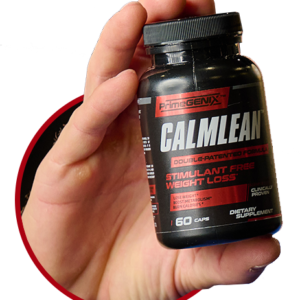After collecting over 10,000 reviews of various creatine brands, the question “does creatine cause weight gain?” has become a major concern. Over time, we have reviewed more than 10 creatine brands, evaluating their effectiveness in terms of increasing performance, strength and power, endurance, and muscle growth. In this article, the focus will be on providing you with the answer to your burning question: does creatine make you gain weight? Let us get into it.
What is Creatine?
Creatine is a natural compound found in the muscles of our body, which is made up of three amino acids: glycine, arginine, and methionine. It plays a critical role in the production of ATP (adenosine triphosphate), the primary energy source for muscle contractions. Our body naturally produces a small amount of creatine, but it is also found in foods like beef, pork, and fish.
How Does Creatine Works?
Creatine works by increasing the body’s stores of ATP (adenosine triphosphate), which is the primary source of energy for muscle contraction. During intense exercise, the body rapidly depletes its ATP stores, which can lead to muscle fatigue and decreased performance. When creatine is consumed and absorbed into the muscle cells, it helps to regenerate ATP more quickly, allowing the muscles to contract more efficiently and with greater power.

In addition to improving energy production, creatine has also been shown to increase muscle mass and strength, as well as improve recovery time after exercise. It is thought that this is due to creatine’s ability to enhance protein synthesis, which is the process by which new muscle tissue is built.
Does Creatine Make You Gain Weight?
Yes, creatine can make you gain weight. However, it’s important to note that this weight gain is not due to an increase in body fat. Instead, it’s due to water retention in the muscles. When you supplement with creatine, it helps to increase the amount of phosphocreatine in your muscles. This increase in phosphocreatine causes your muscles to hold onto more water. This is because creatine draws water into the muscle cells, which can lead to an increase in weight. However, the weight gain from Creatine is generally not permanent, and it will decrease once you stop supplementing with creatine.
It is important to consider the type of creatine supplement you’re using. Some types of creatine, such as creatine monohydrate, are more likely to cause water retention and weight gain than other types, such as creatine hydrochloride. The major two types of creatine are Creatine Monohydrate and Creatine HCL.
Does Creatine Monohydrate Make You Gain Weight?
Yes, Creatine monohydrate make you gain weight. It’s also known for causing more water retention and weight gain in some users than other forms of creatine. The amount of weight gain varies from person to person and depends on factors such as the dosage, duration of use, and individual response to the supplement. In general, creatine monohydrate can cause a temporary increase in body weight due to water retention in the muscles.

Does Creatine HCL Make You Gain Weight?
Creatine HCL is a newer form of creatine supplement that has better solubility and absorption than other types of creatine. It also causes less water retention and weight gain than other forms of creatine, including creatine monohydrate. However, some users may still experience temporary weight gain due to water retention, especially if taking high doses for extended periods.

Overall, all types of creatine supplementation can cause water retention and weight gain, although the amount may vary between individuals and depends on the type of creatine used, dosage, and duration of use. It’s important to choose a reputable brand and follow the recommended dosage to minimize the risk of side effects. Additionally, it’s important to remember that any weight gain from creatine supplementation is typically temporary and should not be a cause for concern.
How Does Creatine Lead to Water Retention in Muscles?
One of the ways that creatine can lead to water retention in muscles is through an increase in muscle cell volume. When creatine is consumed, it pulls water into the muscles, which can cause them to swell and appear larger. This is because creatine draws water into the cells through a process called osmosis, which is the movement of water from an area of low concentration to an area of high concentration.
Another way that creatine can lead to water retention in muscles is through an increase in glycogen storage. Glycogen is the primary energy source for muscles, and when it is stored in the muscles, it is stored with water. When creatine is consumed, it helps to increase the storage of glycogen in the muscles, which can lead to an increase in water retention.
What to Do If You Gain Weight on Creatine?
It is not uncommon for individuals to experience weight gain when they begin taking creatine supplements, as creatine can cause water retention in muscle cells. While this may not be ideal for those looking to lose weight, it is important to keep in mind that this weight gain is not necessarily fat gain. However, if the weight gain is causing discomfort or if it persists over an extended period, there are a few things you can do to help mitigate it:
- Adjust your dosage: One potential reason for excessive water retention could be that you are taking too much creatine. Try reducing your dosage to see if this makes a difference.
- Stay hydrated: Drinking plenty of water can help to flush out excess water and minimize bloating.
- Increase your activity level: Engaging in regular exercise can help to burn off excess calories and improve muscle definition, which can make any weight gain from creatine less noticeable.
- Monitor your diet: If you are concerned about gaining weight, it may be helpful to track your daily caloric intake and ensure that you are not consuming more calories than you are burning. This can help to prevent excess fat gain while still allowing you to reap the benefits of creatine.
How Can You Minimize Water Retention From Creatine?
As mentioned, one of the most common side effects of creatine supplementation is water retention, which can lead to bloating and weight gain. While some water retention is normal and may even be beneficial for muscle growth, excessive water retention can be uncomfortable and undesirable. Here are some ways to minimize water retention from creatine:
Stay hydrated: Drinking plenty of water can help to prevent dehydration, which can exacerbate water retention. Aim to drink at least 8-10 cups of water per day.
Avoid high-sodium foods: Sodium can contribute to water retention, so it is best to avoid processed and packaged foods that are high in sodium. Instead, opt for fresh fruits, vegetables, and lean protein sources.
Take creatine with food: Taking creatine with a meal can help to slow down its absorption and minimize water retention.
Cycle on and off: Some individuals find that taking creatine for several weeks at a time, followed by a period of rest, can help to prevent excessive water retention.
Choose a quality supplement: Choosing a high-quality creatine supplement can help to minimize any potential side effects, including water retention. Look for a product that is pure and free of unnecessary fillers or additives.
For those looking for high-quality creatine supplements, we recommend checking out our in-depth reviews of the top 10 creatine brands currently available on the market. Our reviews provide detailed analysis and insights into the effectiveness, safety, and overall value of each brand, making it easier to choose the best option to help you achieve your fitness goals.
- Naked Creatine
- Nutricost Creatine
- Beyond Raw Creatine
- Thorne Creatine
- BodyTech Creatine
- Con Cret Creatine
- GNC Creatine
- RYSE Creatine
- Super Creatine
- Six Star Creatine
Does Creatine Make You Lose Weight?
Creatine is a popular supplement known for its ability to increase muscle strength, enhance athletic performance, and promote muscle growth. But can it also help with weight loss? The answer is yes, and here’s how:
Increases Metabolism: Creatine can help to increase your metabolism, which is the rate at which your body burns calories. When your metabolism is higher, you burn more calories even when you’re at rest, which can lead to weight loss over time.
Boosts Energy: By increasing the amount of ATP (adenosine triphosphate) in the muscles, creatine can help to boost energy levels during workouts. This increased energy can allow you to work out for longer periods of time, which can help you to burn more calories and lose weight.
Promotes Muscle Growth: Creatine is well known for its ability to promote muscle growth, but why is this important for weight loss? Well, the more muscle you have, the more calories your body burns at rest. This is because muscle tissue is more metabolically active than fat tissue, meaning it requires more energy to maintain. By promoting muscle growth, creatine can help you to burn more calories even when you’re not working out.
Reduces Muscle Fatigue: Creatine has been shown to reduce muscle fatigue during workouts, which can allow you to push harder and work out for longer periods of time. This increased intensity can help you to burn more calories and lose weight.
Improves Recovery: Creatine can help to improve recovery after workouts by reducing muscle damage and inflammation. This can allow you to work out more frequently and with greater intensity, which can lead to greater weight loss over time.

Overall, while creatine is not designed to directly make you lose weight, it can indirectly contribute to weight loss by increasing metabolism, boosting energy, promoting muscle growth, reducing muscle fatigue, and improving recovery. However, it is important to note that creatine should be used in conjunction with a healthy diet and exercise routine for optimal weight loss results.
If you would want weight loss supplements, check our article about The Best Weight Loss Supplement for Overall Body Slimming
Does Creatine Make You Gain Weight: Final Thoughts
Creatine is a safe and effective supplement for improving athletic performance, increasing muscle mass, and enhancing strength. While creatine can cause weight gain due to water retention, it is not permanent, and any weight gain will subside once the supplement is discontinued. Ultimately, the benefits of creatine far outweigh the temporary weight gain, making it a worthwhile supplement for anyone looking to improve their fitness goals. As with any supplement, it is important to use creatine responsibly and follow dosage instructions to avoid potential side effects. By incorporating creatine into a well-rounded fitness routine, individuals can enhance their training and achieve their desired results.



